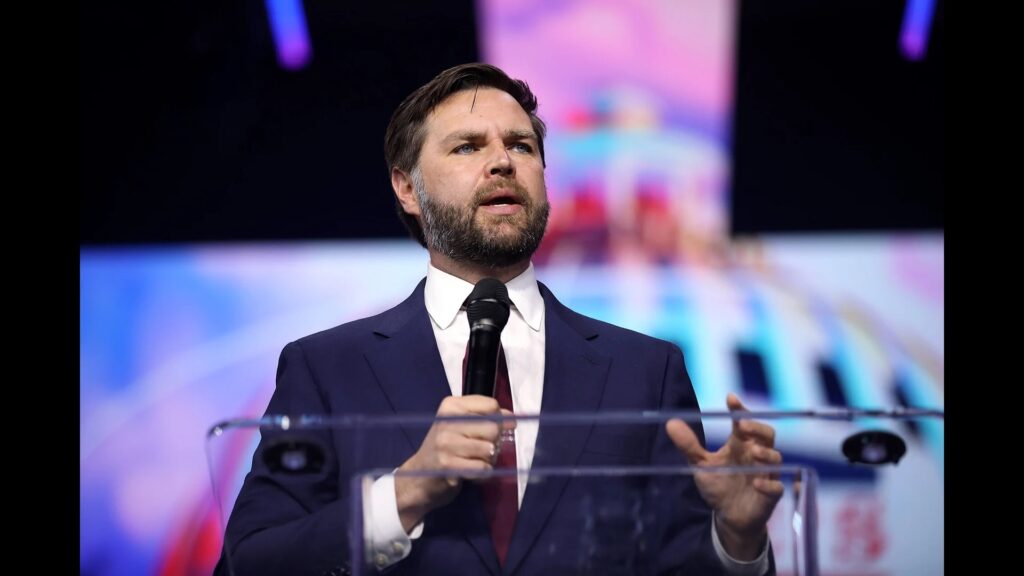
Once celebrated as the thoughtful author of Hillbilly Elegy, Vance’s rise to the vice presidency is a lesson in political transformation—and not for the better.
I liked Vance 1.0—who once spoke with empathy and moral clarity about the struggles of working-class Americans. But the Vance–who jumped 4 points to 5.0—serves as the willing enabler of a presidency marked by grievance, division, and the erosion of democratic values: rule of law, separation of powers, equal protection under the law.
These are not just a string of catchphrases; they are the foundational principles of the republic.
Vance’s conversion reflects both personal ambition and deeper rationalization—or “reframing” as many call it—of values that should stand beyond the reach of politics.
When President Trump threatened military escalation against Iran, it was Vance—not the president’s generals or diplomats—who became the administration’s loudest voice, defending potential unilateral action and urging Americans to “trust the president.” That message—”trust the man, not the process” is the language of autocracy, not democracy and should trouble anyone who believes in the careful guardianship of American power.
Vance’s shifting worldview is most evident in his stance on global conflict. He loudly supports military action against Iran, yet opposed aid to Ukraine—a sovereign democracy fighting for its survival after Russia’s brutal invasion. Now that Trump has reversed course on sending arms to Ukraine, one has to wonder how Vance will justify his change of heart this time.
Equally troubling is Vance’s selective use of his Catholic faith. Both Pope Francis and Pope Leo XIV have made clear that nationalism, exclusion, and indifference to suffering betray Christian teaching—the same values I learned from the Catholic Catechism—values, where humility, dignity, and life are replaced by the rhetoric of division.
“The threat from within,” Vance said, is the biggest concern in terms of security for Europe, “not Russia, not China.”
The teaching to welcome the stranger is drowned out by political attacks. In Vance’s hands, Catholic dogma is no longer a moral compass, it’s a prop.
The ethical implications run deeper still. The very institutions that enabled Vance’s rise—public education, the rule of law, an independent judiciary, a free press—are now under siege from the administration he so forcefully defends. His rhetoric no longer speaks of “We the people.” It speaks of loyalty to one man.
Gone is the senator I once respected. Gone is the humility that marked his early story. In its place is a betrayal of his faith and a hardened partisan view that prizes power over principle.
Vance may argue that the culture must be “saved” from progressive elites, and that Trump alone can do it, but that’s the oldest justification in the political playbook, and exactly what democratic ethics warn against: sacrificing the rule of law and institutional integrity for the sake of power.
The transformation of J.D. Vance is more than a personal tragedy. It’s a warning:
When the pursuit of power leads us to abandon the principles that define both our democracy and our faith, we risk losing not just political contests, but the very soul of the republic.











